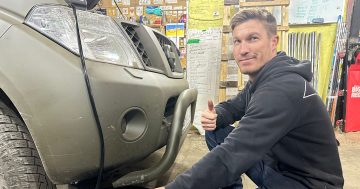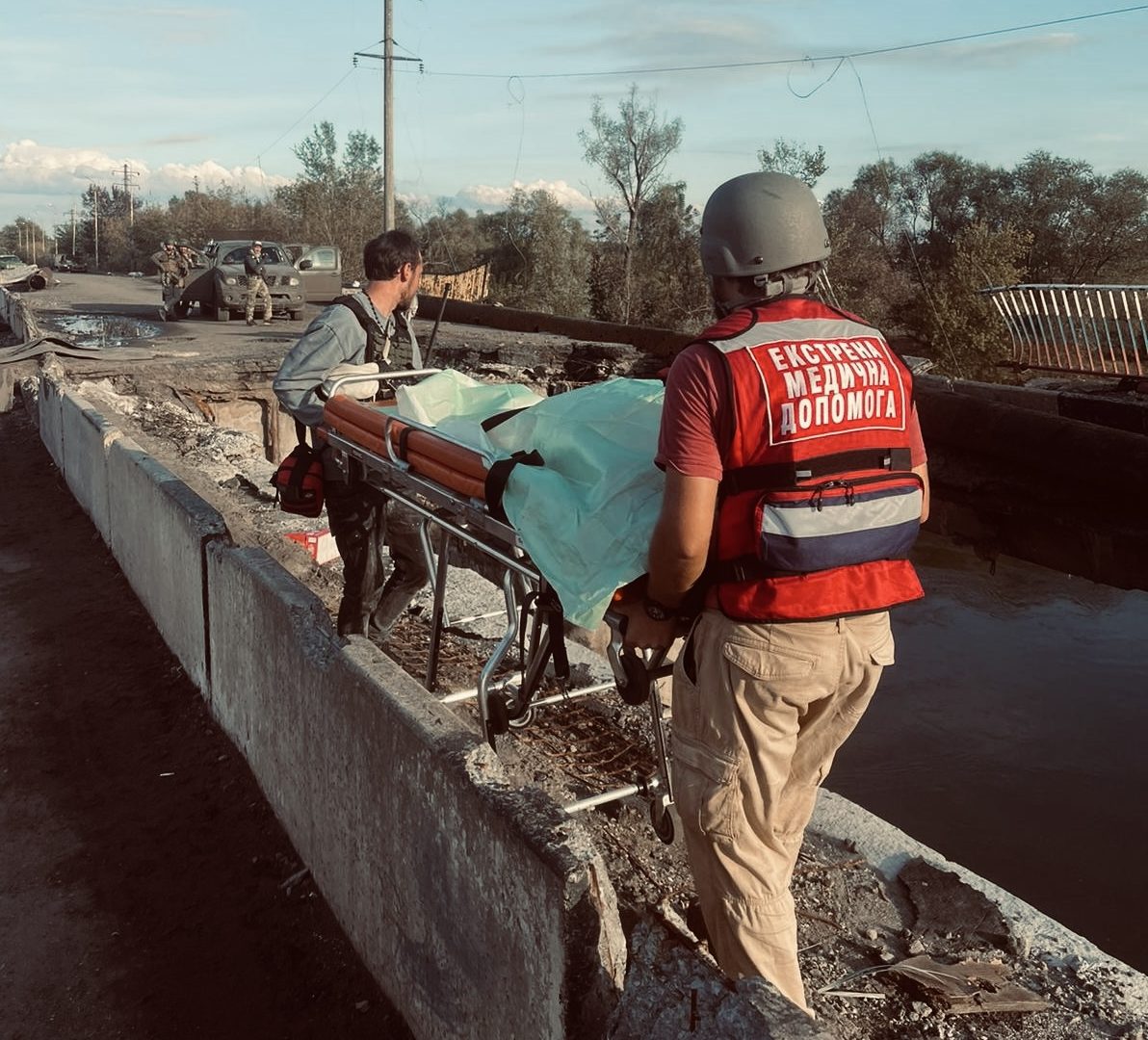
Medics evacuate patients across a concrete footbridge on the Ukrainian frontline. Photo: Jack Dear.
Nowhere’s safe in a war zone, but administering medical care within cruise missile range adds a whole new level of urgency to the phrase “first responders”.
A couple of young Canberra paramedics have cobbled together all their leave to work with Frontline Medics, helping Ukrainians amid the ongoing war.
Jack Dear currently works with ACT Ambulance and is a former cavalryman who joined the army at 17, spending time in Afghanistan where he was on security detail at our embassy in Kabul. He’s just back from six weeks in a hot war.
His mate Frank Attard is a 10-year veteran of Iraq, Afghanistan and Timor-Leste. He’s heading to Ukraine as a volunteer medic shortly.
Jack wanted to help as soon as war broke out, although his partner urged caution, discussing where he’d go and what his intentions were. Initially, they agreed that was no further than Kyiv. But when he arrived on the ground, he realised nowhere is safer than anywhere else.
“They’re shooting rockets in, yes, but you’re just as likely to have a car crash, because there’s no lighting and all kinds of road hazards. So if you take the risk into account, I felt it was appropriate to be closer to the frontline,” Jack says.
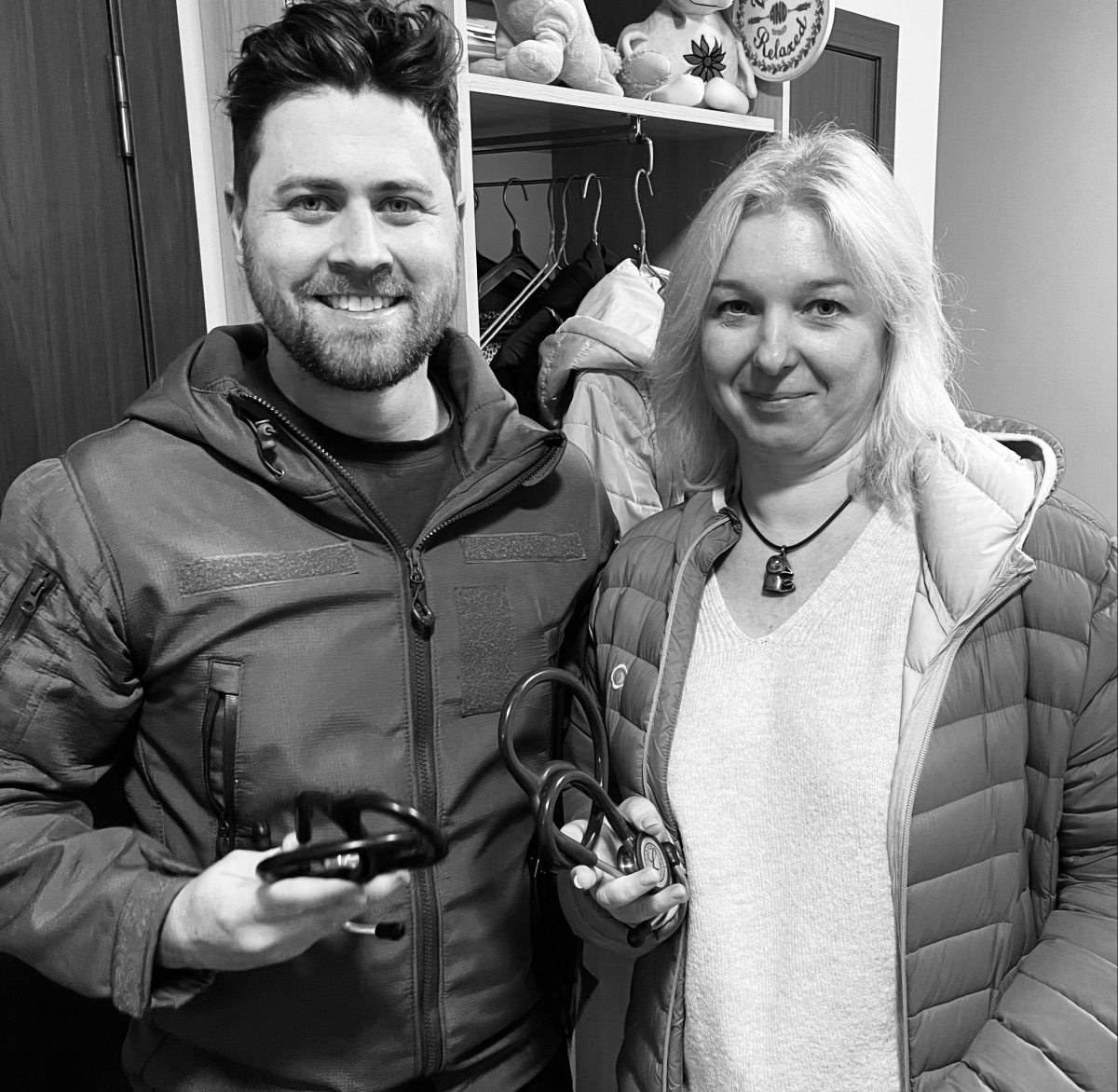
Jack Dear with Dr Elena, the Ukrainian clinician who guides the Frontline Medics operation. Photo: Jack Dear.
Frontline Medics is a recently formed NGO and with it, Jack undertook evacuations for civilian soldiers. As a non-combatant, he couldn’t treat armed forces, but many ordinary Ukrainians are fighting too, and being injured or killed.
Others were trapped in occupied zones and after towns and villages were liberated, the paramedic crew set up clinics.
Elderly and ill people streamed out of their houses, many of them in their 70s or older. They may have run out of diabetes medication or essential heart medicine months ago. There were untreated sores, pregnant women and even children, all in urgent need of care.
“We’d set up in the town square, and they would be ecstatic because they needed food, they needed water, they needed health care,” Jack says.
”All the NGOs that were still working in that space would congregate in one area. We’d try to deliver as much care as we could, as quickly as we could, because you’re still within range of artillery rounds.”
The volunteer organisation has six donated ambulances and a guiding angel in the form of Dr Elena, an American-trained Ukrainian doctor who oversees the clinical response.
The danger’s very real. The frontline is constantly moving and Simon, the surgical technician and paramedic who founded Frontline Medics, was recently wounded by a guided-missile strike.
Courageous Ukrainians regularly pass on information about artillery, tank positions and troop movements via encrypted social media.
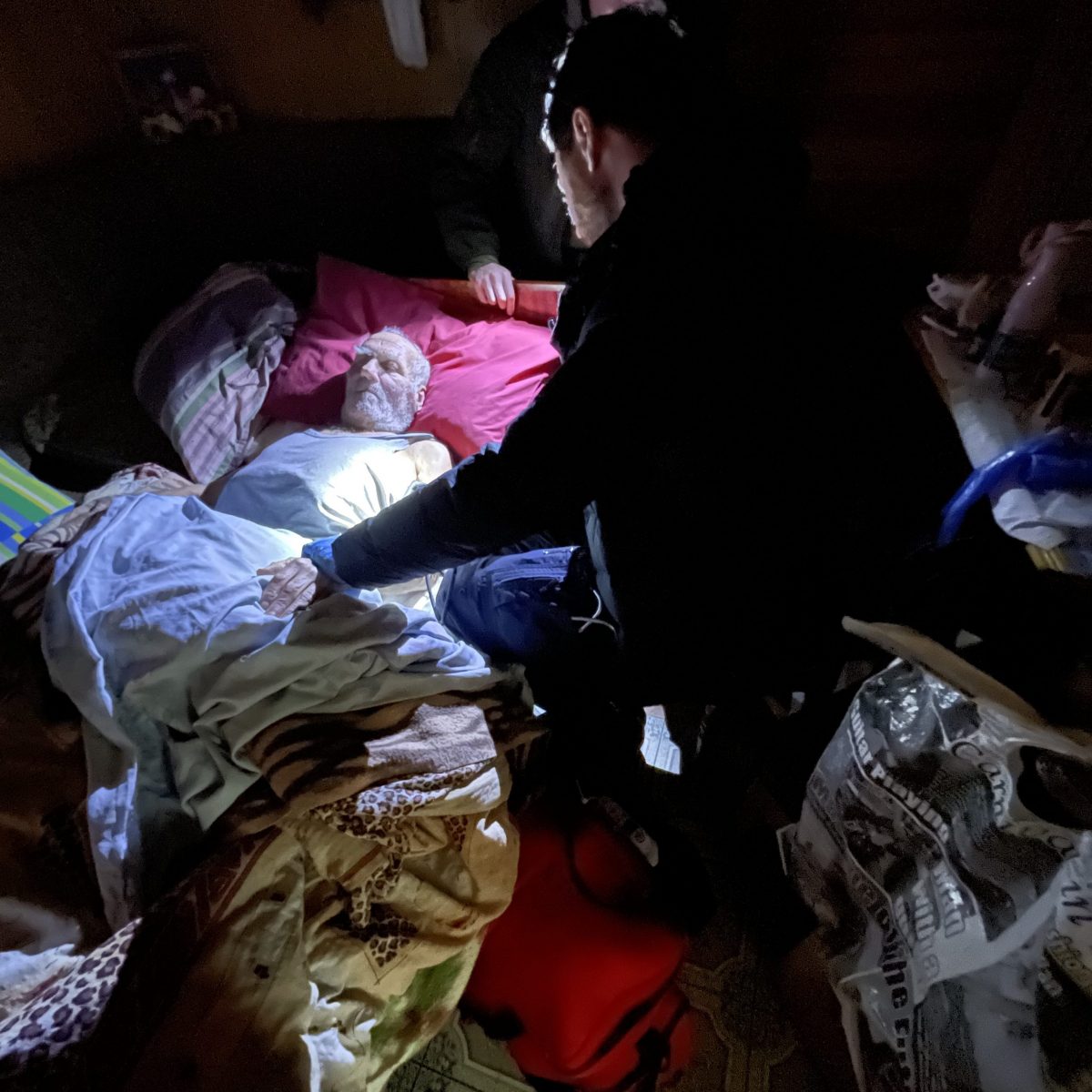
Many Ukrainians trapped in occupied zones are old and ill. Photo: Jack Dear.
“At the start of the war, people were making Molotov cocktails. That has just morphed into a whole network where we all coordinate with each other,” Jack says.
“What blew us away was the number of Ukrainians working in the refugee centres to look after those that had been displaced internally, burning the candle at both ends, trying to do their own job and help their country.”
There’s no end in sight: the spring thaw is approaching and the Russian activity will ramp up again. Jack won’t go back this time – he’s conscious of the toll this takes on his family and that Canberra also needs its paramedics.
There are also real mental health risks from frequent exposure to extreme trauma.
“I try to see it through a medical lens where I’m taking away lessons, improving my practice. But it’s like a muscle, you don’t want to tear it, don’t want to pull it to the point you can’t recover,” he says.
Frank is on his way shortly. His family is also concerned, understanding the risk from Russian artillery fire is considerably greater than the Taliban’s inaccurate weapons.
He says he’s not anxious, yet.
“As a paramedic, you have an obligation to help everyone that’s unwell or hurt. The Ukrainian people are suffering tremendously, particularly those very frail people who are still in war zones, the elderly, people with chronic health conditions,” he says.
The pair has collected medical donations from Calvary Hospital and other donors including Belconnen Men’s Shed.
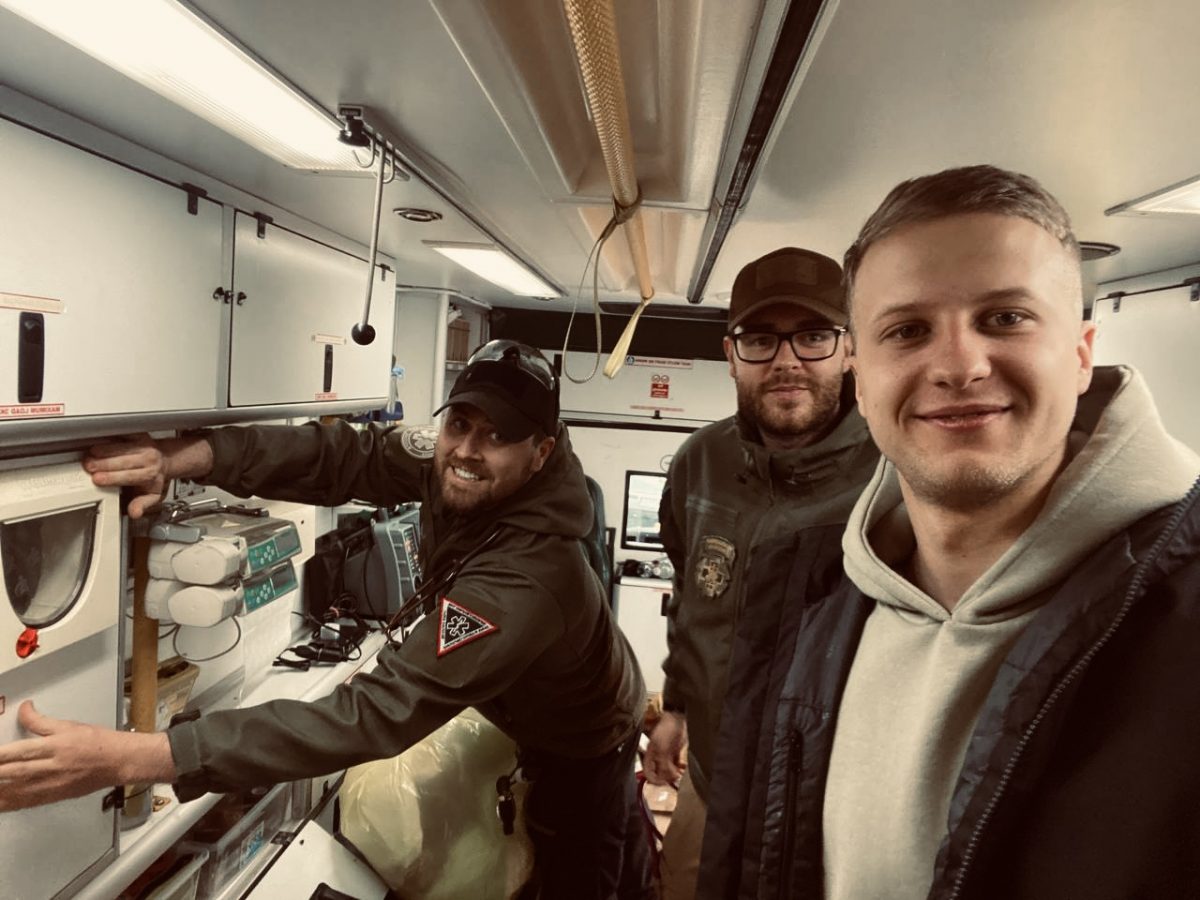
Medical supplies are urgently needed on the frontline. Photo: Jack Dear.
Medical consumables including needles, fluids, medication and wound care – including anything usable that may have recently expired, such as bandages – are urgently needed.
“I wish you could see the hospitals,” Jack says. “It’s old Soviet-era stretchers covered in blood and being used over and over again. It’s absolutely terrible.”
Larger equipment including small ultrasound machines or other testing devices that can be used in the field are also welcome. And so are volunteers.
“If anyone wants to donate, they can do so at frontlinemedics.org. Or they can volunteer if you’re a qualified medic, and committed to going over. I’m happy to have a phone call and have a chat. We need all the help we can get,” Jack says.
If you’re interested in knowing more, contact Jack via email, at [email protected].
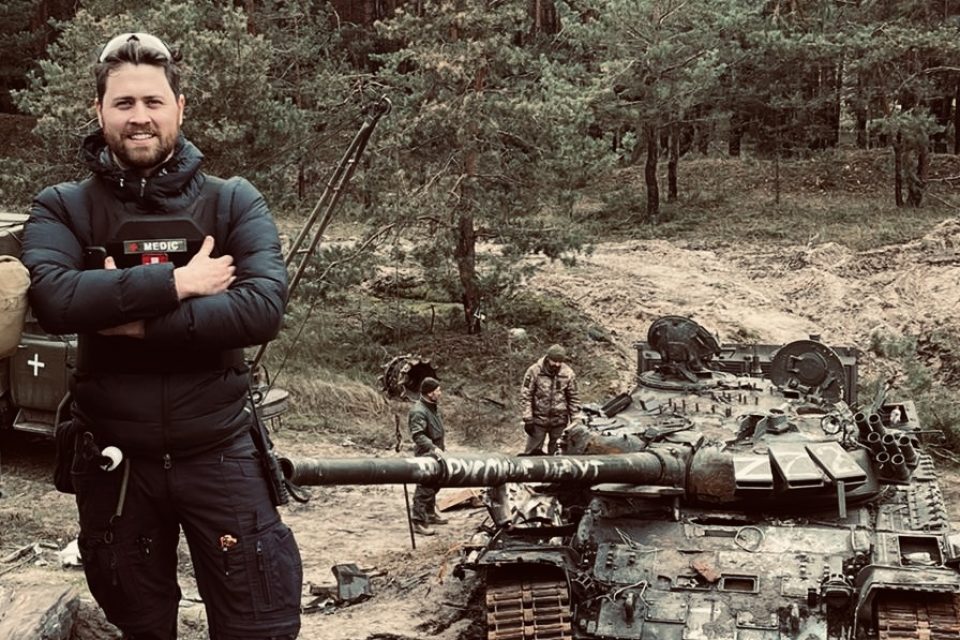
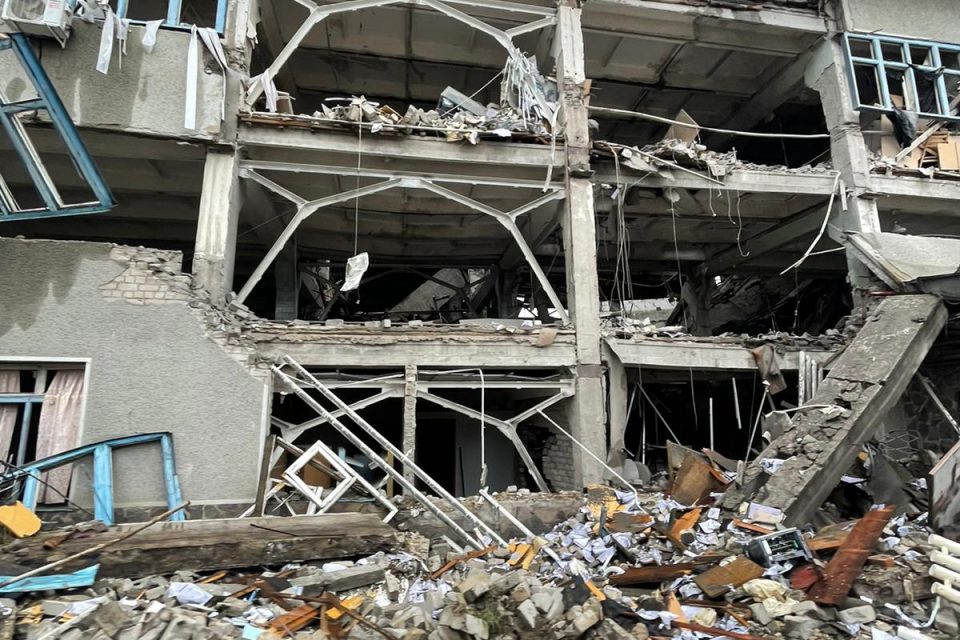


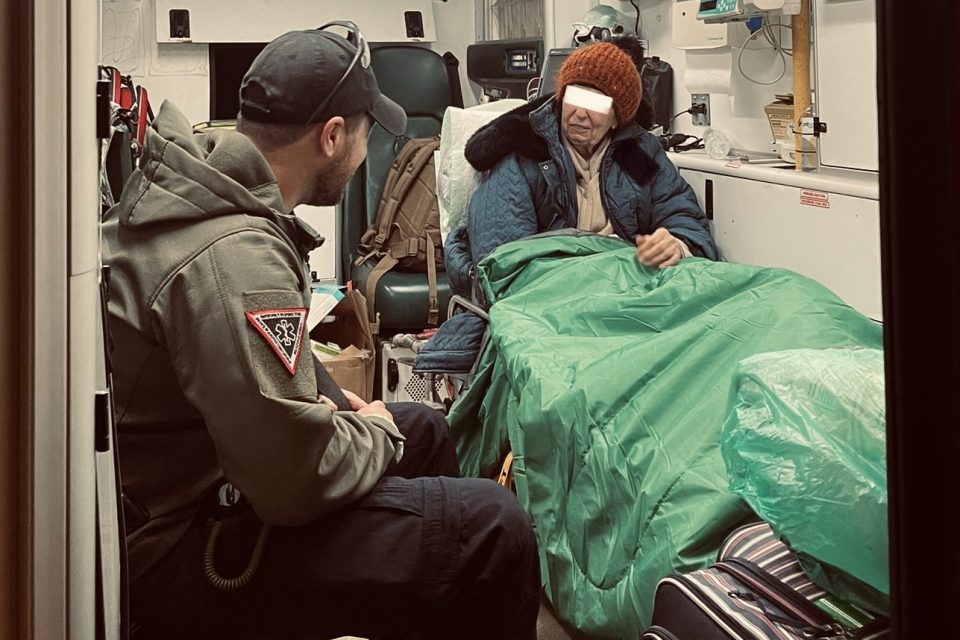
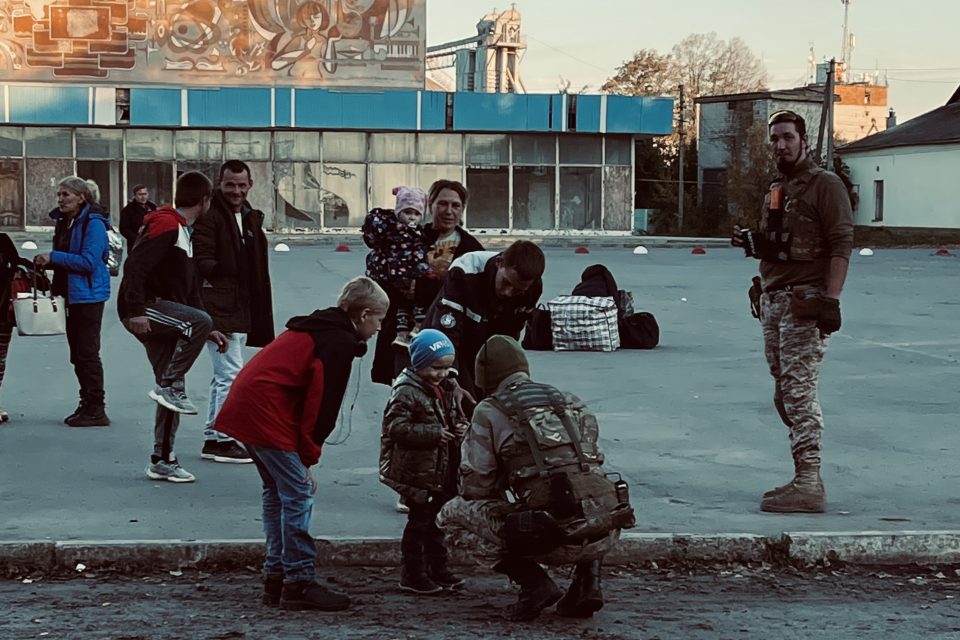
Original Article published by Genevieve Jacobs on Riotact.






